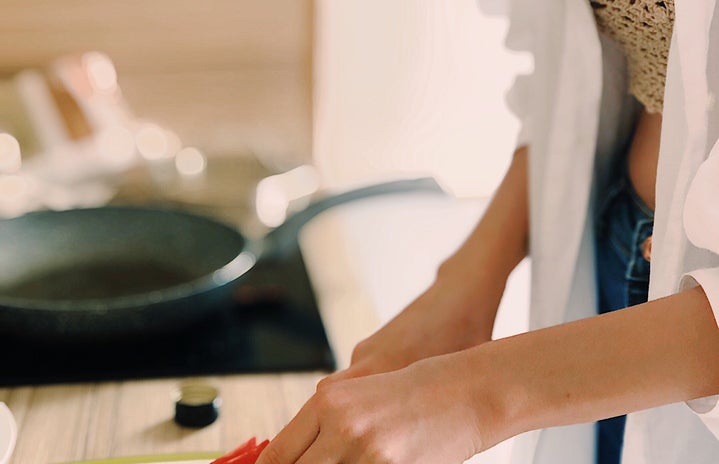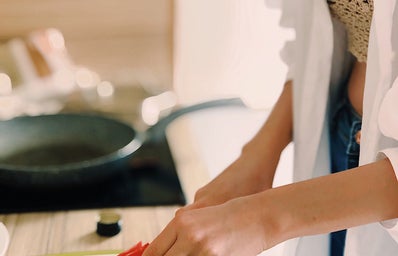In 1959, English women were enclosed precariously between the traditions of the previous decade and a series of successive, radical liberations enabled by innovations in technology. The shelves were littered with technicolour packets, an abundance of pre-packaged brands gleamed enticingly as a hopeful invitation to free women from the burdens of the kitchen, and by 1959 one-fifth of household food expenditure was spent on “convenience foods”, partially lessening women’s arduous workload. This beginning of emancipation from traditional housework would send women on a trajectory which would still pose an issue today; how to reconcile feminism with the kitchen?
Despite the incessant positioning of women within the domestic sphere, they are not valued for it professionally. The celebrity chef persona is dominated by men benefiting from the ‘glass escalator’; a phenomenon which describes how men’s careers are accelerated within predominately female professions. These women who do manage to succeed are pigeonholed within archetypes from the maternal Mary Berry to the sexualised Nigella Lawson, in stark contrast with the authoritative Gordon Ramsey and everyman Jamie Oliver. The message from this is clear: women’s role in food is one of servitude and obligation rather than ambition and choice.
The undervaluation and unappreciation of women is not just an issue imposed by men, women oppress one another through food. White feminism often ignores the subjugation of people of colour and working-class women, and this ignorance is continued within the household. In order to liberate white middle-class housewives in America, black and immigrant women had to work extremely long and physically demanding days doing housework with little reward. Though one type of woman was freed, she had sacrificed those less privileged than her.
To many women, food is not an issue of consumption. Food is moralised as we label it, unhealthy foods are ‘naughty’ temptations and healthier ones are ‘clean’. These narrow binaries leave little flexibility; under the patriarchy, women are either feminine or rebellious, subordinate or revolutionary, pure or immoral, and women’s relationship with food mirrors this. Food is restricted from childhood as society treats women’s bodies as trends to be swapped out seasonally, while maintaining unattainable thinness as a prerequisite. This desired slimness is founded upon Victorian beauty standards which idealised emancipated, sickly women modelled on tuberculosis patients. In a world where food is a political issue, eating is revolutionary. Food is something to be prepared by women but not to be consumed by them.
So how can we conciliate our relationship with food? While the kitchen has been historically oppressive to women, it has also been a source of empowerment. While the world of publication was historically closed off to women, through writing about cooking in the 18th and 19th century, German and English women were able to become authors as they were more knowledgeable on household preparation. An increasing number of writers such as Martha Bradley, writer of The British Household (1756), were able to relay their knowledge from working as professional chefs as well as demonstrate their talent for penmanship. Cooking provided a much-desired channel of communication with other women. Similarly, the passing down of family recipes from mother to daughter illuminates a voice in contrast with the typically unrecorded nature of female history, it supplies us with a link and lineage with the usually silent women of the past.
Enjoying cooking does not make you a bad feminist. However, we must no longer treat cooking as a duty or expectation for women but instead as a choice. Cooking now can be used as a process of self-care, a therapeutic and creative process which provides an outlet to experiment freely while improving mental well-being. We can reappropriate cooking too as a way to sustain and nurture ourselves, as an act of self-care to nourish our bodies. Additionally, cooking can become a source of empowerment for women, with lifestyles such as veganism allowing women to politically protest through their diets. Despite its varied past, not only can cooking be reclaimed, but it can be utilised as a tool to strengthen, assert and heal women.



